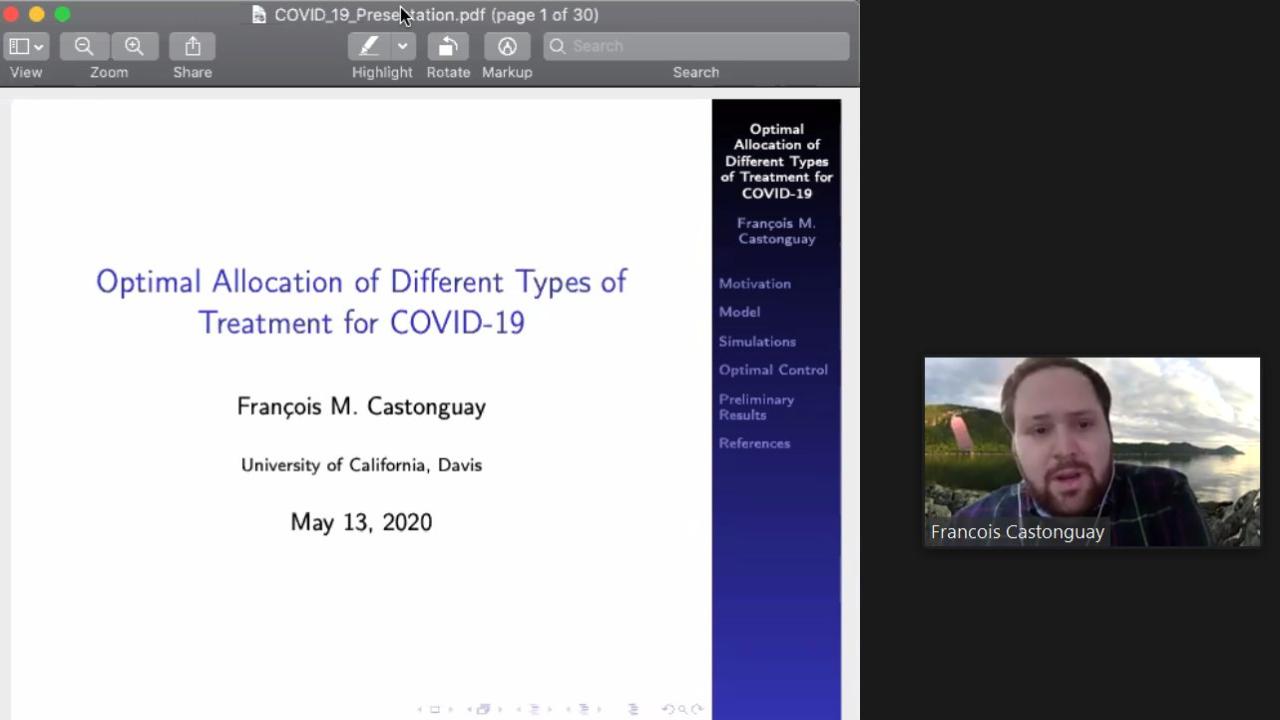
Lab Seminar - Optimal allocation of different types of treatment for COVID-19
François Castonguay presented his research on optimal allocation of treatment for COVID-19. As of May 13, 2020, there are 1,042 ongoing or completed studies to find a treatment against the novel coronavirus disease (COVID-19). François classifies potential treatments in three categories: vaccines, antiviral drugs, and symptomatic drugs. Because of their inherent natures, these different treatments would affect a different aspect of the disease’s life cycle, and in turn, would have a heterogeneous impact on the dynamics of the susceptible, exposed, infected, and recovered (SEIR) compartments. François uses optimal control techniques where the objective is to treat the disease over a planning period at the lowest possible total cost, where total costs include damages related to infectious individuals and deaths, expenditures related to treatment, and a policy adjustment cost. Treatment is scarce and must be allocated optimally between two different states that differ only in terms of when the outbreak started. François shows that it is optimal to initially allocate a majority of resources to the state where the outbreak started last (i.e., the state that has the most susceptible individuals), regardless of the type of treatment developed. However, the dynamics of the allocation change depending on the type of treatment: (i) vaccine allocation initially starts high in the state where the outbreak started last, but it decreases slowly over time; (ii) antiviral drug allocation in the state where the outbreak started last increases over time; (iii) symptomatic drugs shift within one year from being allocated all to the state where the outbreak started last, to being allocated all to the state where the outbreak started first.